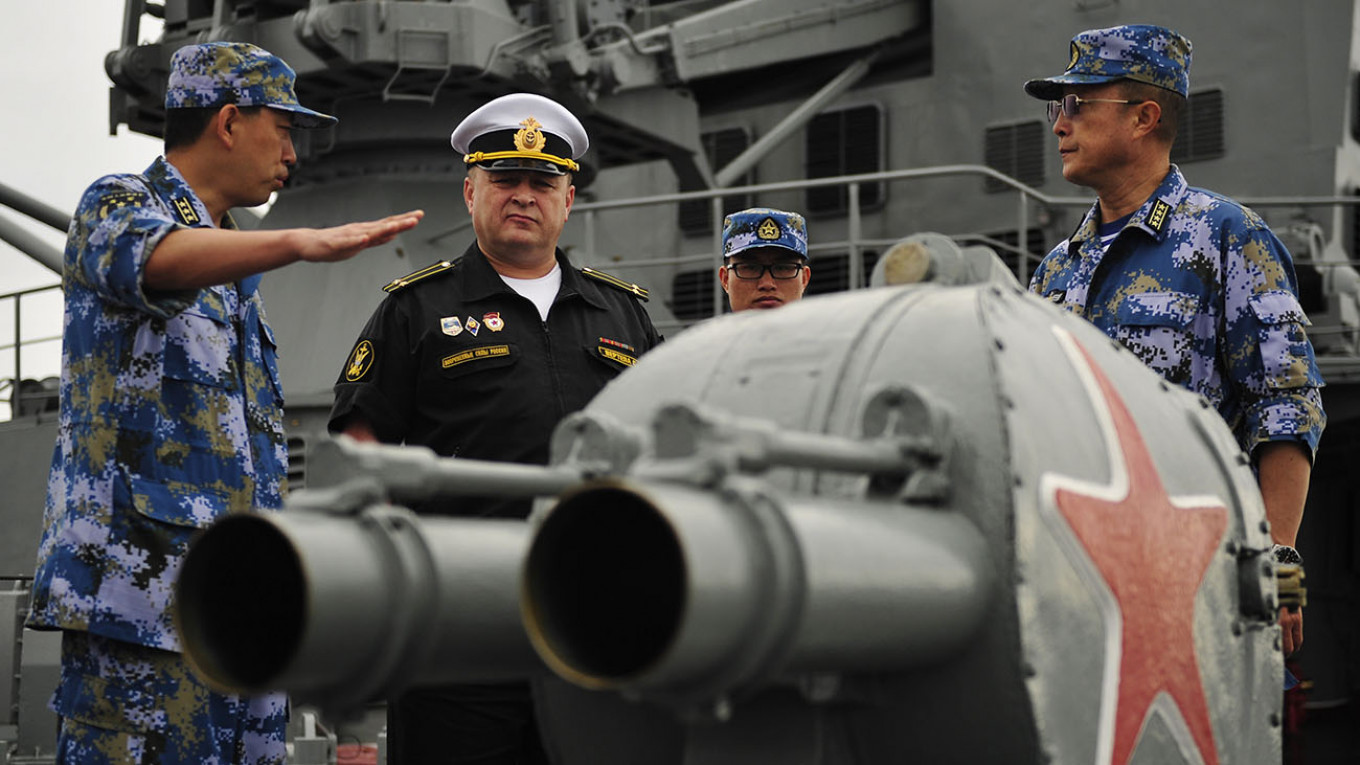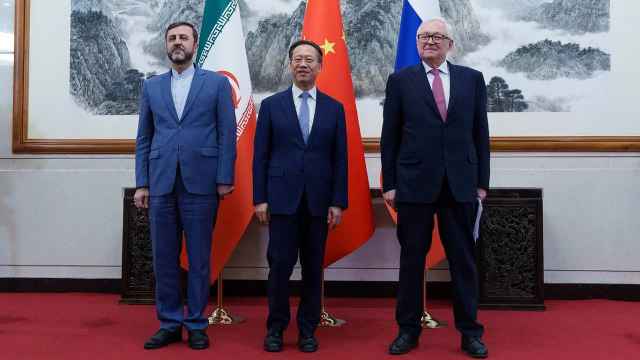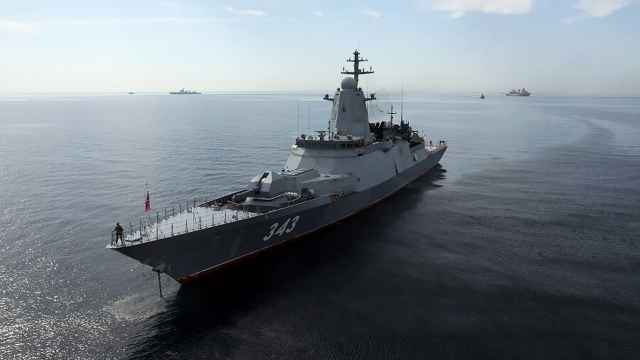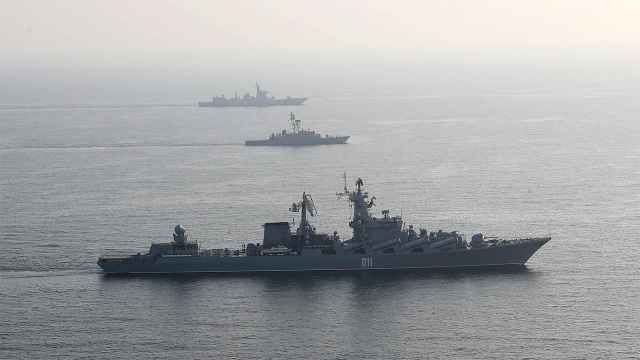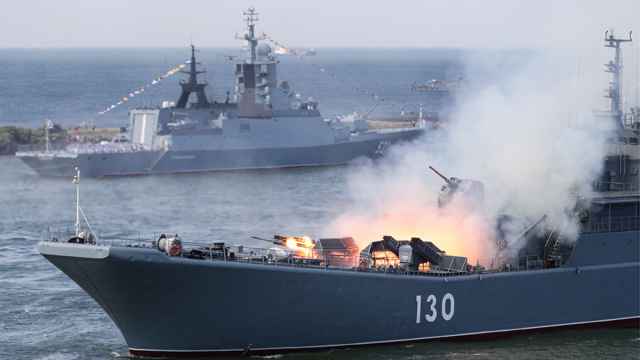China, Iran and Russia will hold joint naval drills starting on Friday in the Indian Ocean and Gulf of Oman, China's Defense Ministry said on Thursday, amid heightened tensions in the region between Tehran and Washington.
China will send the Xining, a guided missile destroyer, to the drills, which will last from Dec. 27 to 30, and is meant to deepen cooperation between the three countries' navies, ministry spokesman Wu Qian told a monthly news briefing.
The Gulf of Oman is a particularly sensitive waterway as it connects to the Strait of Hormuz — through which about a fifth of the world's oil passes — which in turn connects to the Arabian Gulf.
The drills are also coming at a time of fraught tensions between the U.S. and Iran.
Friction has increased since last year when U.S. President Donald Trump pulled the United States out of Iran's 2015 nuclear deal with six nations and re-imposed sanctions on the country, crippling its economy.
Washington has proposed a U.S.-led naval mission after several attacks in May and June on international merchant vessels, including Saudi tankers, in Gulf waters which the United States blamed on Iran. Tehran denies the accusations.
Tensions have risen in the region not only over Iran's disputed nuclear program but also over a September attack on Saudi oil facilities blamed on Iran by the United States and Saudi Arabia. Iran also denies involvement.
China has close diplomatic, trade and energy ties with Iran.
But Beijing also has good relations with Iran's regional rival Saudi Arabia, meaning it has long had to tread a fine line in a part of the world where Beijing has traditionally exerted far less sway than the United States, Russia, France or Britain.
Chinese President Xi Jinping is likely to visit Saudi Arabia next year as it is the host of the 2020 G20 summit.
A Message from The Moscow Times:
Dear readers,
We are facing unprecedented challenges. Russia's Prosecutor General's Office has designated The Moscow Times as an "undesirable" organization, criminalizing our work and putting our staff at risk of prosecution. This follows our earlier unjust labeling as a "foreign agent."
These actions are direct attempts to silence independent journalism in Russia. The authorities claim our work "discredits the decisions of the Russian leadership." We see things differently: we strive to provide accurate, unbiased reporting on Russia.
We, the journalists of The Moscow Times, refuse to be silenced. But to continue our work, we need your help.
Your support, no matter how small, makes a world of difference. If you can, please support us monthly starting from just $2. It's quick to set up, and every contribution makes a significant impact.
By supporting The Moscow Times, you're defending open, independent journalism in the face of repression. Thank you for standing with us.
Remind me later.



